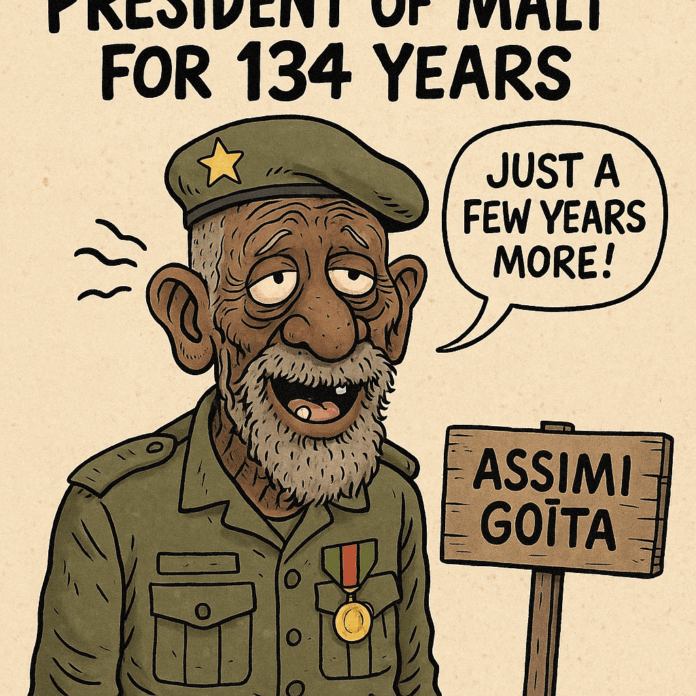In a Sahel left to its own devices, General Assimi Goïta cements his grip on Mali’s highest office with a legislative manoeuvre that voids any real democratic prospect for at least the next five years.
A Coup That Dare Not Speak Its Name
When the law granting an unlimited mandate to Assimi Goïta was promulgated on July 10, few in Bamako seemed genuinely shocked. A weary population, long betrayed by broken promises, now watches a junta that rewrites the rules of transition to suit its survival. Nobody pretends to believe anymore that “pacification” will lead back to any meaningful democracy.
The subtle signs were there: the dissolution of political parties, bans on gatherings, a carefully stage-managed national dialogue in April where dissenting voices were conspicuously absent. The Malian military, backed by Russian mercenaries from Africa Corps, has silenced public debate and locked down the political arena, repression dressed up as counterterrorism.
Moscow’s Shadow, Paris’ Silence
It did not go unnoticed that the junta leader was photographed in Moscow in late June. This diplomatic choreography illustrates, yet again, the slow evaporation of French influence and Russia’s calculated encroachment on West Africa. France, mired in its own Sahelian misadventures, can no longer claim the moral high ground, while Washington conveniently averts its eyes, reserving its democratic grandstanding for other, more headline-friendly crises.
Anglo-American media outlets dutifully recycle wire reports, rarely probing the dark corners: Who really controls the Malian army’s operations? How many civilians are caught in the dragnet of these offensives led by foreign guns-for-hire? As Mali, Niger and Burkina Faso entrench themselves within the Alliance of Sahel States, the country morphs into an authoritarian outpost, and Western chancelleries look the other way.
Dissolution Today, Eternity Tomorrow?
This so-called unlimited mandate, sold as temporary, paves the way for what is effectively a presidency for life, cloaked in the empty promise of stability. The few protests, heavily policed, have done little to slow the junta’s steamroller.
It is wishful thinking to believe this mandate will be “shortened” once “conditions for a peaceful, transparent election” exist, as the charter claims. The security pretext will justify every extension, every arrest, every new dissolution.
Mali, once a relative democratic beacon in the region, is now sliding openly into military autocracy, under Moscow’s indulgent eye and with its neighbours’ passive blessing.
Conclusion: Order Without Freedom
Behind it all lurks the age-old dilemma: should political liberty be sacrificed on the altar of security? In a Sahel ravaged by jihadist insurgencies, the answer is obvious for men like Assimi Goïta, perpetual instability justifies perpetual rule.
The real question is whether popular resignation will hold until 2030, or far beyond.



